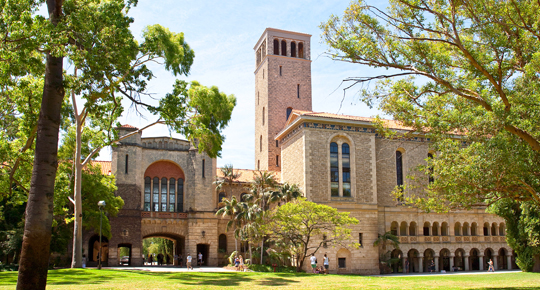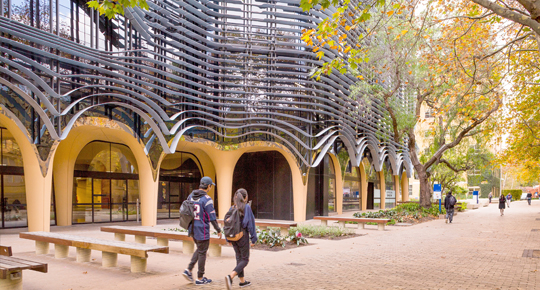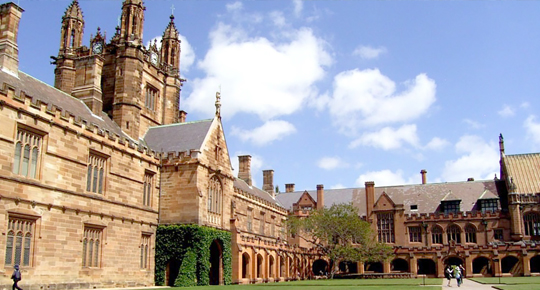Home
-
Study Destination
- AustraliaAustralia is one of the top study destinations with an excellent education system. With 8 out of 120 World's Top Universities and 5 out of 30 Best Student Cities in the World, Australia is home to over 1100 institutions offering a wide range of programs. According to statistics, 35 Australian universities are among the world’s best-ranked. The country spends up to 250 million dollars per year in financial aids, scholarships, grants for international students to study in Australia.
Known globally as one of the world’s most diverse and welcoming countries, with migrants from about 200 countries, the Australian society is a mixture of cultures that blend into a tolerant and relaxed lifestyle. Australia has consistently ranked in the world’s top 10 most livable countries. The contemporary lifestyle and indigenous culture attracts many international students every year.

For a very sparsely populated country with a relatively small number of universities, housing 8 out of the top 100 universities in the world is quite a feat. Australian universities regularly feature in global rankings like QS World University Rankings, Times Higher Education Rankings, and the Shanghai Jiao Tong Academic Ranking of World Universities. With such strong credentials, today, Australia is the 3rd most popular study destination for international students in the world behind only the US and the UK.
With over 22,000 high-quality courses and programs on offer in as much as 1,100 institutions, study in Australia is a great choice for you—whether you want to be taught by the best or undertake your own research.
Degrees from Australian universities are recognized by universities and employers all over the world. It is not surprising to know that there are now over 2.5 million international students all over the world who have studied in Australia. Some of these students are among the world’s finest minds. Did you know that Australia has produced 15 Nobel laureates?
You can work part time while studying, which would help you offset some of your living costs. International students are allowed to work for up to 20 hours/ 40 Hours per fortnight a week during semesters and full-time during the university holidays. Australia's minimum wage is AU$ 18 per hour. While studying in Australia many international students find work in sectors such as hospitality and retail. These jobs often have flexible working hours to avoid a clash with classes.
You can apply for Scholarships in Australia based on courses and universities..
Australia is considered as one of the safest countries in the world with multicultural, friendly and pleasant society. Did you know that 5 out of 30 best student cities in the world are in Australia? Melbourne has been named as the world's most liveable city and Sydney has been voted as the friendliest city in the world. This ranking is based on various parameters such as the mix of students based on nationalities, cultures, races and religion; affordability; quality of life, and employability.
There are over 500 National Parks in Australia to explore and 19 UNESCO World Heritage sites to tick off your list if you do set out on such an endeavor. You can go scuba-diving in the Great Barrier Reef or snorkel alongside gigantic whale sharks in Ningaloo Reef. There are countless other things to see and experience.
An Australian study visa is relatively easier to get than visas for the US and the UK. On 1st July 2016, the Australian government has abridged the visa subclasses and introduced a simplified student visa framework (SSVF) to provide more efficient visa services to applicants. As per the new SSVF, all the study visas came under a single platform or a class (subclass 500).

Tertiary education in Australia comprises of higher education (universities), and vocational education and training institutes [vocational education and training (VET) and technical and further education (TAFE) colleges]. Classes are generally conducted in large group lectures and small group tutorials.
The country has a unified system of qualifications, well-known as the Australian Qualification Framework (AQF), which is regulated by the Australian Government. It unifies and assures the quality offered at different levels of education in Australia. Australian schools, universities, and institutes are linked across the nation and also linked globally. Thus students can move easily from one level of study to the next after successfully completing the level, and from one institution to another, as long student visa requirements are satisfied by the student. Following are the Australian Qualifications Framework (AQF) levels of qualifications granted by Australian institutions for higher education:

Australia offers Vocational and Technical studies known as TAFE and VET through various institutes. These institutes offer short courses, certificate courses, diplomas, and advanced diplomas. These courses are meant to provide training for students in a particular vocation or help them to get out into the work place.
Australia has in total 43 universities, out of them, 40 universities are public universities, 2 are international universities, and 1is private university. The country has some of the most prestigious and high ranking universities of the world. As per the latest the QS World University Rankings, 35 Australian universities are ranked among the world’s top 500 universities’ list and 6 are ranked among the world’s top 100.

Australian universities offer a wide range of courses and programmes as per the field of interest of the students. Whether it’s an undergraduate or postgraduate programme a student wants to enrol in, there are numerous options on one’s platter. Australia is particularly known for social sciences, management and natural sciences degrees.

The Australian Universities usually take around 2 days to 4 weeks to respond or to process student’s application. Students are advised to apply as soon as possible.
Copyright @ 2020. Designed and Developed by Montech Design